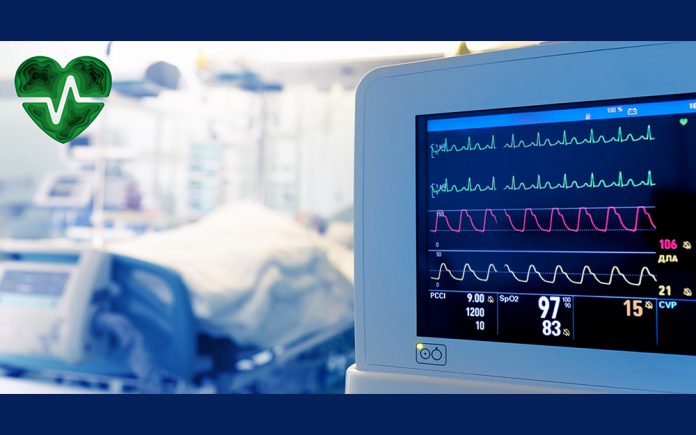
BY RUTH HILL R.N.
Returning from her ICU shift, a nurse removes her clothes and shoes in her garage and throws them into the washing machine. She proceeds to take a shower before touching or greeting anyone. Afterwards she slumps in a chair only to awaken an hour later with tremors. As silent tears stream down her face, she envisions the six times, she removed a patient from his/her ventilator. The patients family is not present. The nurse takes up the baton of priest, and counselor. There is no one else there. One more prayer to be whispered, one more significant lover to console.
This scenario, of a health care worker (HCW), repeats every night for the next 10 days on, four days off, 10 days on, 4 days off of work for over a year. Quarantined in the basement living room so as not to infect her husband she wonders how long this will last without the symptoms of Post Traumatic Stress Disorder (PTSD)? Essential workers have the highest rates of adverse mental health outcomes compared to all other employment groups surveyed by the CDC.
WebMD defines PTSD as shell shock or battle fatigue syndrome, a serious condition that can develop after a person has experienced or witnessed a traumatic or terrifying event in which there was serious physical harm or threat. PTSD is a lasting consequence of traumatic ordeals that cause intense fear, helplessness, or horror. Families of victims can develop PTSD, as can emergency personnel and rescue workers.
Panic attacks, a key component of the diagnosis of panic disorder, along with chest tightness, a racing heart, shortness of breath, dizziness, lightheadedness, weakness, unsteadiness, and numbness often send patients to the emergency room. However, multiple studies show panic patients also exhibit respiratory irregularities such as chronic hyperventilation, sighing, and breath-holding compared to the general population, indicating important underlying physiological factors. Some research reveals a precursor to panic attacks and PTSD can be sensitivity to CO2.
A study review evaluates three major Coronavirus outbreaks of the last two decades to investigate resilience factors for PTSD and PTSS in HCWs. It included Nineteen studies on the SARS 2003 outbreak, two on the MERS 2012 outbreak and three on the COVID-19 ongoing outbreak. Risk factor variables included exposure level, working role, years of work experience, social and work support, job organization, quarantine, age, gender, marital status, and coping styles. It will be critical to account for these factors when planning effective intervention strategies to treat HCWs facing the current COVID-19 pandemic.
Treatments in the past for PTSD include Cognitive Processing Therapy, Prolonged Exposure, Eye Movement Desensitization, Reprocessing, Antidepressants (SSRIs and SNRIs), and FreeSpira, a nonmedication treatment all reimbursed by insurance. The Freespira platform combines a proprietary sensor, a nasal sampling cannula, a connected tablet and proprietary software that measures the users CO2 hypersensitivity then normalizes CO2 and respiratory rates. Freespira claims 62% of patients were panic attack free at 2-month follow-up, 68% of patients were panic attack free one-year post treatment and 93% demonstrated clinically significant improvement in the number or severity of panic attacks.
As far back as 2011 studies in New Mexico and elsewhere showed a 75% reduction in symptoms with cannabis use. Recent years have brought a wealth of new scientific understanding regarding how medical marijuana or cannabis can be beneficial for treating PTSD/PTS.
One study, from researchers at Wayne State University in Detroit, MI, looked at the impact cannabis exerts on the amygdala response of those dealing with trauma related anxiety, such as PTSD. Previous research shows cannabis has the potential to reduce anxiety, or even prevent heightened anxiety in threatening situations.
As more and more states legalize marijuana, the federal government passes the M.O.R.E. ACT, and medical institutions defer testing for THC, HCW will finally be allowed to self treat their mental illness of PTSD. HCW may not want to use employer benefits due to confidentiality issues. My prayer is these legal issues become resolved before it is too late for our traumatized medical workers.
Sign up for the virtual Cannabis Summit 2021 to learn cannabis use for anxiety, panic attacks and PTSD.
Direct comments and questions to https://www.ruthahillrn.com










































